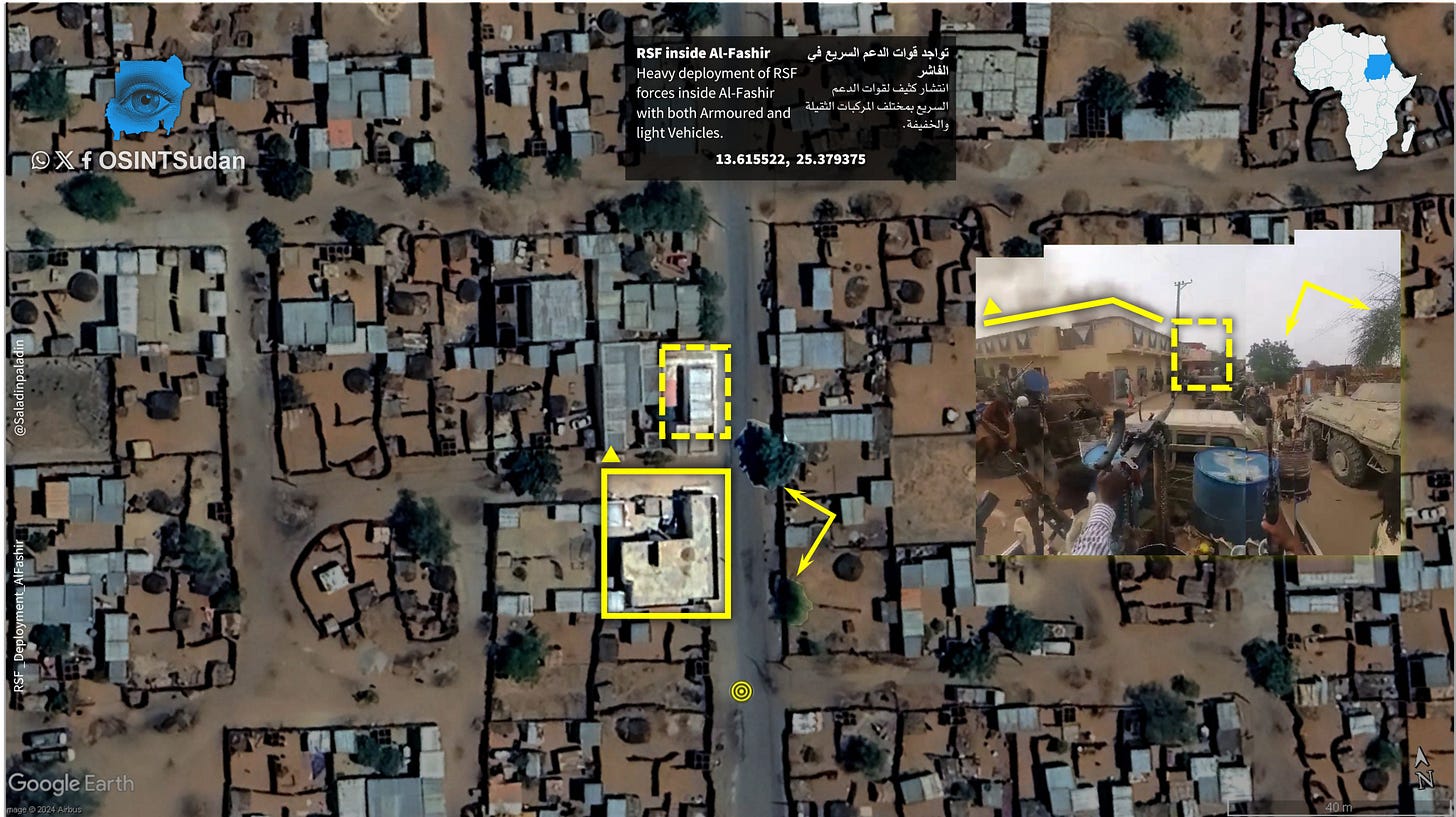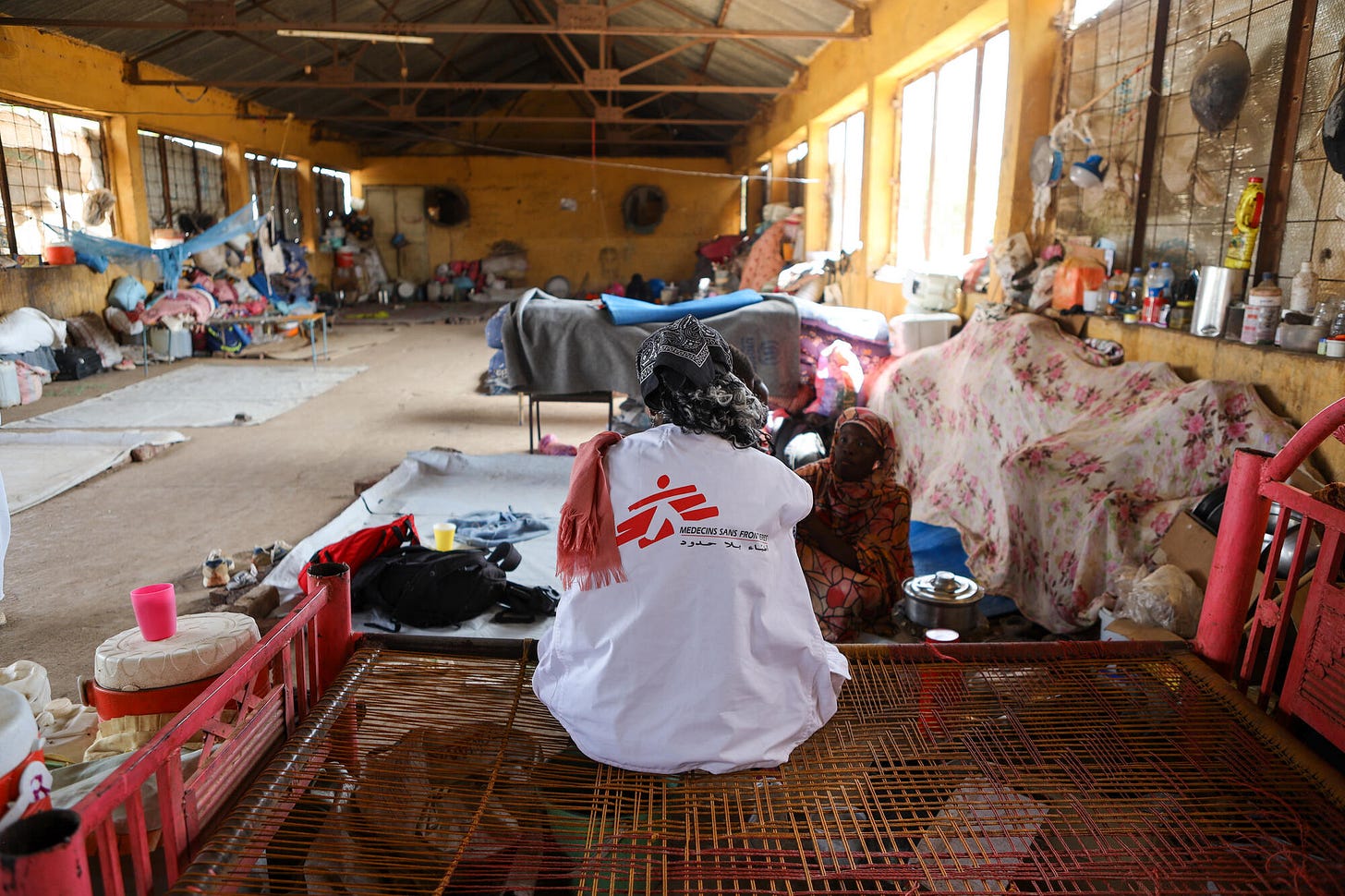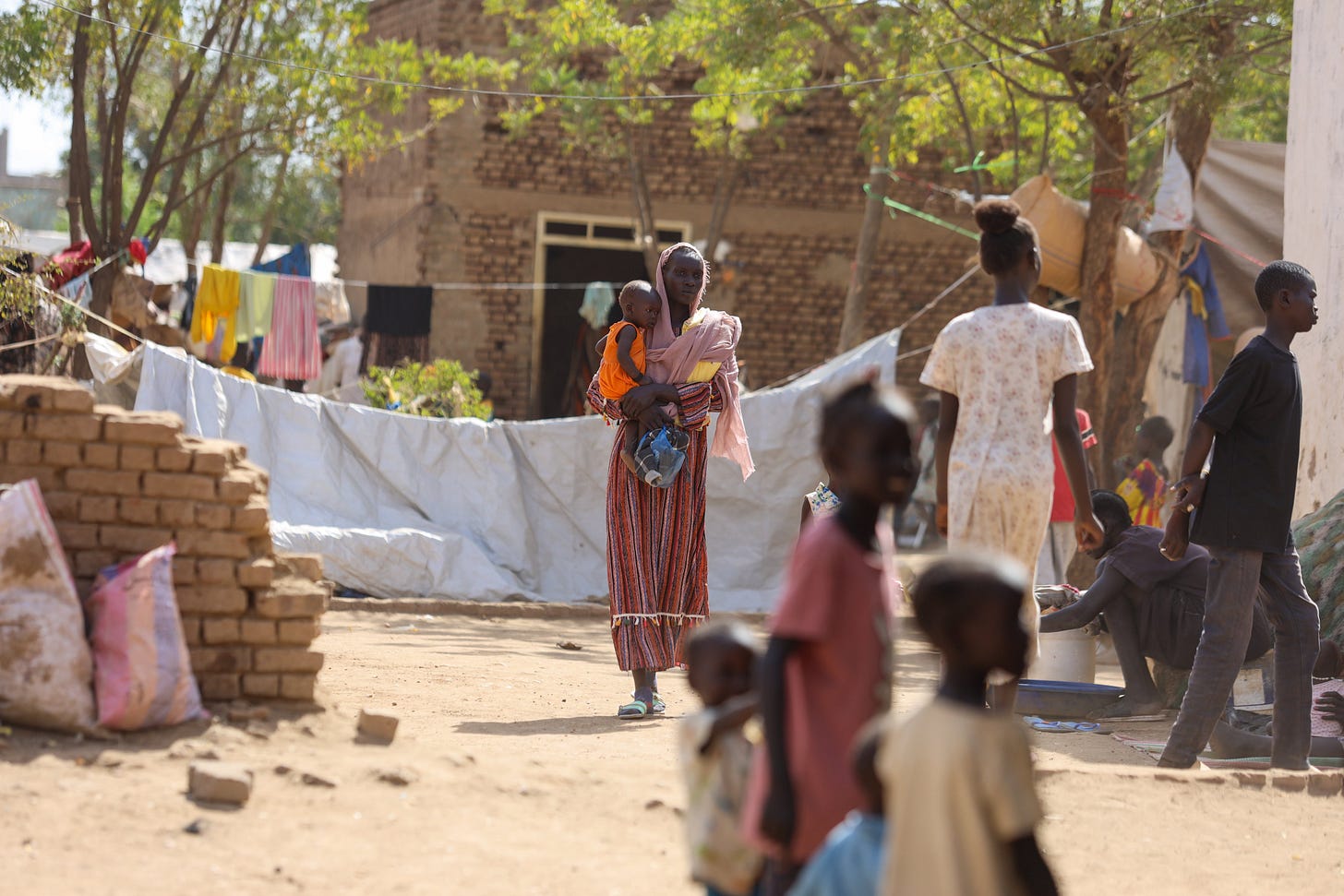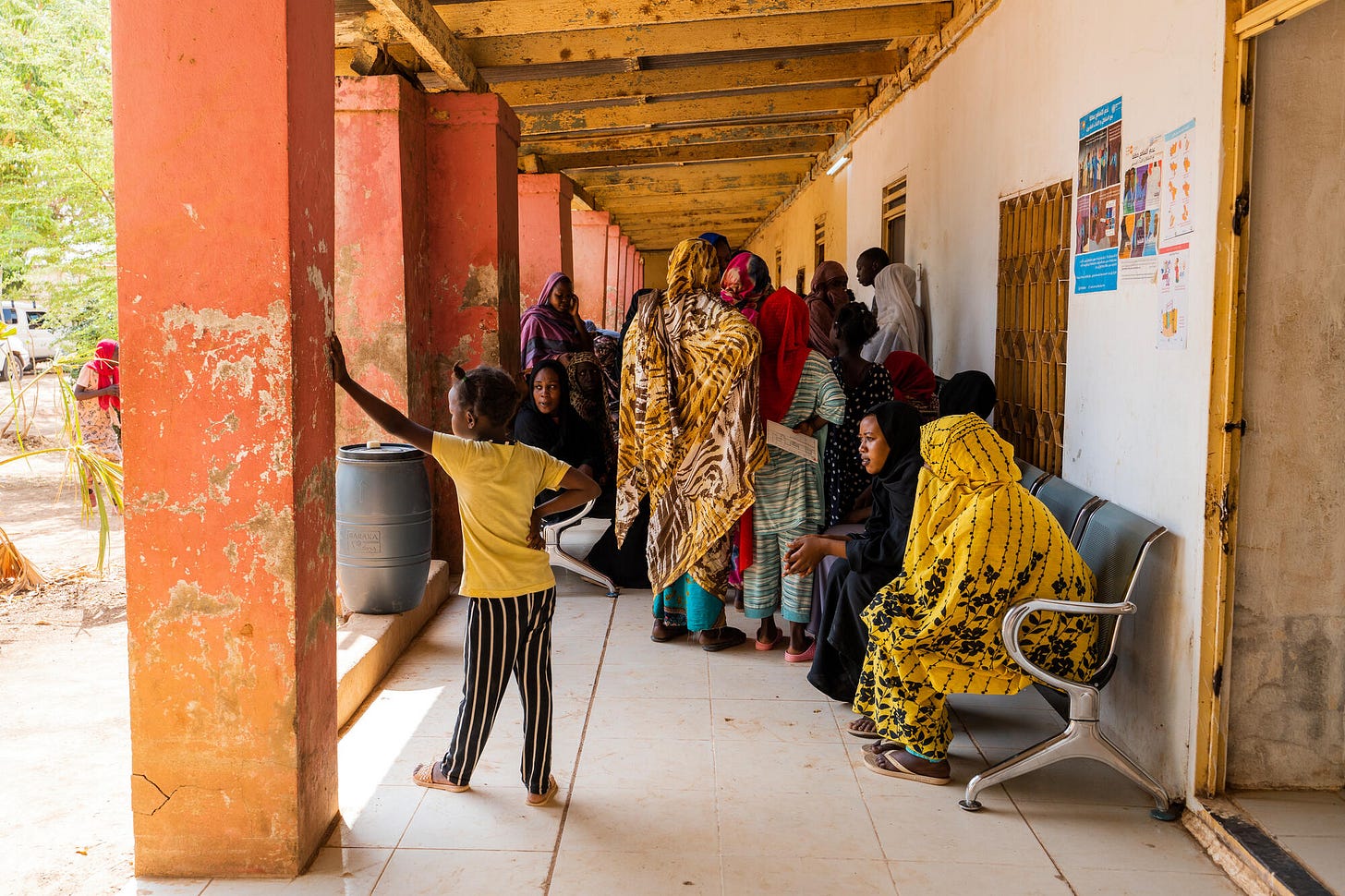Fresh fighting in North Darfur capital
Joint Force launch surprise attack against RSF troop buildup
Heavy fighting broke out in El Fasher, North Darfur, and continued throughout much of the day Friday, killing and injuring dozens of civilians caught in the crossfire and reviving fears of a major battle for control of the city of 1.5 million people.
The Rapid Support Forces (RSF), in a statement after the fighting, claimed that they were attacked and fought only in self-defense. For their part, the Joint Force of Armed Struggle Movements—which are allied to the Sudanese army—acknowledged that they launched ground attacks against the RSF but said that they did so in response to heavy artillery attacks.
Local media, citing Joint Force and civilian sources, corroborated that the army and Joint Force had initiated the fighting, aiming to preempt the RSF troop buildup in the northern neighborhoods of the city and break the siege.
RSF's spokesman Col. Al-Fatih Gorashi said that their forces “repelled a treacherous attack by the [Sudanese army] and their allies from the mercenary movements on our forces in El Fasher. These forces infiltrated the positions of our forces and attacked them through three axes, which led to civilian casualties in residential neighborhoods and camps for the displaced, and thousands fled out of the city.”
Gorashi affirmed that the RSF would not attack the city center, abiding by appeals by international organizations, including the United Nations, to refrain from an attack on El Fasher, while vowing that they would defend themselves from attacks.
He said, “We alert the international community and the whole world that we have committed since last March not to advance towards the remnants’ headquarters in the city center [headquarters of the SAF 6th Infantry Division], but we are surprised by the attacks from the other side every day without taking into account the presence of civilians and the displaced camps, which they are using as human shields.”
In recent weeks, the RSF have mobilized around El Fasher, occupied some neighborhoods on the outskirts, and attacked outlying villages. Fighting is still only intermittent, and a full-scale attack by the RSF against the army-controlled areas hasn’t yet happened as feared. Human rights organizations have warned that an RSF takeover of El Fasher could result in mass ethnic killings.
Large deployments of RSF troops were seen in videos yesterday near the El Fashir Power Plant with both armoured and light vehicles, according to geolocated video.

Separately, in a press statement, the Joint Force claimed to have inflicted heavy losses on the RSF saying, “In the morning, the Rapid Support Militias launched an attack with heavy artillery on civilian neighborhoods, which left dozens of injured and deaths among civilians. As a result, the Joint force of the Armed Struggle Movements moved to confront the attacking militia in a long battle that lasted about 10 hours… the Janjaweed militia [RSF] suffered heavy losses in men, equipment, and vehicles, as well as many wounded. Our joint forces forced the militia to flee the battlefield.”
Below are videos of Joint Force troops celebrating after the fighting, including one in which they parade a captured RSF prisoners of war, and another in which they are towing a captured vehicle.
The Joint Force consists of troops loyal to the Sudan Liberation Movement led by Minni Minawi, the Justice and Equality Movement led by Jibril Ibrahim, and other former Darfur rebel movements. Eight of these movements recently held a conference to make war plans to liberate Darfur from the Rapid Support Forces.
The entry of these armed movements into the war, abandoning a previous neutral stance, has significantly escalated the violence in North Darfur.
Meanwhile, citizens said that the fighting completely paralyzed El Fasher yesterday, as residents stayed indoors and shops and markets closed. El Fasher is already a hungry city, and the new fighting will make it harder to bring in and distribute food.
The World Food Programme last week warned of impending starvation in El Fasher and other parts of Darfur, saying, “The recent surge in violence in El Fasher is exacerbating critical humanitarian needs… El Fasher had been a relative safe-haven for families, hosting many IDP camps that pre-date the current conflict. Yet conditions were already critical with reports of children dying of malnutrition.”
Yesterday’s fighting resulted in dozens of injuries, according to a volunteer with the El Fasher Emergency Room, quoted by Darfur 24. She said that El Fasher South Hospital received dozens of casualties hit by shells and stray bullets. A lack of ambulances to bring the wounded to the hospital put at risk the lives of the wounded, she noted.
MSF evacuates Wad Madani due to threats, obstruction
Médecins Sans Frontières (MSF) suspended work and withdrew its staff from Madani Teaching Hospital, the only functioning hospital in the capital of Al Jazira State, due to harassment, repeated security incidents, and obstruction by both warring parties.
“This difficult decision comes after more than three months of relentless challenges trying to provide care at the hospital,” the aid organization said in a news release. “We have been unable to bring new staff and medical supplies into the area due to the denial of travel permits, and faced repeated security incidents, such as looting and harassment, affecting our ability to provide medical care.
MSF blamed the Rapid Support Forces (RSF), which control Wad Madani, saying, “Over the past three months, our team and the supported Ministry of Health staff staff have faced repeated security incidents that have been either carried out or tolerated by the RSF, including looting of the hospital, stolen vehicles, and staff being detained, among multiple other incidents.”
It also faulted the Sudan Armed Forces for imposing “deliberate administrative blockages” to prevent the entry of medical supplies and new staff into the area.
MSF was the only international aid group working in Wad Madani. It had evacuated after the RSF takeover in December, before returning in January. Since then, MSF provided nearly 10,000 outpatient consultations, treating thousands of malaria cases, providing more than 2,000 antenatal consultations, and giving care to 16 survivors of sexual assault. MSF also treated gunshot and shrapnel victims, who represented a large proportion of the nearly 3,000 admissions to the emergency room.
MSF worked alongside 240 Ministry of Health workers, whom it supported with salary incentives, while also providing food for patients.
In Brief
Two Hawazma Arab tribal leaders were assassinated in Kadugli, South Kordofan, raising fears of fighting between Hazama and Nuba tribes. A local community leader accused the military intelligence of the 14th Infantry Division of “orchestrating the attacks to incite tribal warfare in Kadugli.”
During a speech to troops Wednesday, the leader of Sudan’s military junta, Abdel Fattah al-Burhan, rejected the idea of a negotiated solution to the conflict, saying, “There will be no negotiations, no peace, and no ceasefire until the RSF is crushed and the criminal rebels are eradicated.”
Four people were killed near the Dambar area in Central Darfur state following an attack launched by gunmen from the Salamat tribe on a grazing area of the Beni Halba tribe, Radio Dabanga reported. Fighting between these two Arab tribes last year resulted in hundreds of deaths, until the two sides made peace.
USAID Administrator Samantha Power held a phone call with Deputy Commander-in-Chief of the Sudan Armed Forces Shams al-Din Kabbashi, urging him to “take immediate and specific steps to lift impediments to humanitarian aid operations,” including by opening the border crossing from Adre, Chad.
Following our report about a probable massacre of prisoners of war by the RSF in North Kordofan, additional video was geolocated showing the RSF executing two prisoners of war, while the body of a third, possibly executed earlier is also visible.
ICYMI: Sudan army routed in heavy fighting along El Obeid-Kosti road





